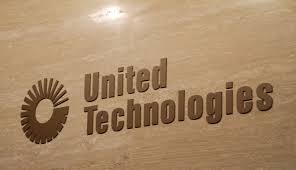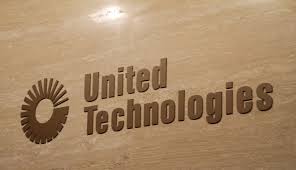
Claiming that pursuing a merger would be "irresponsible" toward its shareholders, U.S. industrial conglomerate United Technologies on Friday rejected a $90.7 billion offer by rival aerospace supplier Honeywell International Inc.
One of the largest U.S. companies with almost $100 billion in annual sales would have been created if the two companies that had sparred publicly about the deal, went through.
Boeing said that it would careful scrutinize a deal and underscored the need for "healthy competition" in its supply chain even as other major customers weighed in.
The two companies had talked about a possible combination for years, said the United Technologies Corp.
A merger now would either be blocked outright, or any synergies would be far outweighed by regulatory delays, required divestitures, and customer concerns and concessions due to the changed regulatory environment, it said.
"It would be irresponsible for UTC to move forward with the proposed combination," the company said in a regulatory filing.
Putting pressure on the reluctant aerospace supplier to come to the negotiating table, Honeywell spelled out the details of its $90.7 billion offer to acquire United Tech. However United Tech's filing came hours after this move.
A combined company would have double-digit earnings growth after it slashed costs said Honeywell Chief Executive Officer David Cote, in a presentation he made to United Tech's top executives last week and then made public on Friday.
"Game on.... There is clear momentum in this saga, and a ratcheting up of the tensions," wrote Rob Stallard with RBC Capital Markets. There were unresolved questions about achievable synergies, management roles, cultural fit, and merger premiums, he said adding that there were concerns about business overlap.
It was not convincing that the regulatory environment was as tough as United Tech potrays it to be, said Jeff Bialos, a law partner with Sutherland Asbill & Brennan and a former senior Pentagon official. United Tech likely did not want to cede control to Honeywell as divestitures were always possible, he said.
While Honeywell makes thermostats, auto turbochargers and airplane cockpit electronics, United Tech is the parent of Otis elevators, Carrier air conditioners and Pratt & Whitney jet engines.
Small aircraft engines, airplane power units and environmental systems as well as wheels and brakes, CRT Capital were the areas of overlap, said Capital analyst Peter Arment in a note to clients.
Arment added that before a deal was done, Honeywell would likely have to divest many assets and raise its offer.
According to sources familiar with the deal, U.S. and European regulatory scrutiny would push the deal's completion well into 2017, and potentially into 2018.
$42.63 in cash and 0.614 of its shares for each United Tech share were offered by Honeywell, the company said. A 22 percent premium to United Tech's closing price on February 19 was made after the last trading day before the talks were made public.
Honeywell shares closed 1.1 percent lower at $103.03.
They had held merger talks but did not offer details, the companies said earlier this week. A deal would "face insurmountable regulatory obstacles", United Tech had said.
"It just cannot happen. There's just no way to get it done," United Tech CEO Greg Hayes said on CNBC television this week.
(Source:www.reuters.com)
One of the largest U.S. companies with almost $100 billion in annual sales would have been created if the two companies that had sparred publicly about the deal, went through.
Boeing said that it would careful scrutinize a deal and underscored the need for "healthy competition" in its supply chain even as other major customers weighed in.
The two companies had talked about a possible combination for years, said the United Technologies Corp.
A merger now would either be blocked outright, or any synergies would be far outweighed by regulatory delays, required divestitures, and customer concerns and concessions due to the changed regulatory environment, it said.
"It would be irresponsible for UTC to move forward with the proposed combination," the company said in a regulatory filing.
Putting pressure on the reluctant aerospace supplier to come to the negotiating table, Honeywell spelled out the details of its $90.7 billion offer to acquire United Tech. However United Tech's filing came hours after this move.
A combined company would have double-digit earnings growth after it slashed costs said Honeywell Chief Executive Officer David Cote, in a presentation he made to United Tech's top executives last week and then made public on Friday.
"Game on.... There is clear momentum in this saga, and a ratcheting up of the tensions," wrote Rob Stallard with RBC Capital Markets. There were unresolved questions about achievable synergies, management roles, cultural fit, and merger premiums, he said adding that there were concerns about business overlap.
It was not convincing that the regulatory environment was as tough as United Tech potrays it to be, said Jeff Bialos, a law partner with Sutherland Asbill & Brennan and a former senior Pentagon official. United Tech likely did not want to cede control to Honeywell as divestitures were always possible, he said.
While Honeywell makes thermostats, auto turbochargers and airplane cockpit electronics, United Tech is the parent of Otis elevators, Carrier air conditioners and Pratt & Whitney jet engines.
Small aircraft engines, airplane power units and environmental systems as well as wheels and brakes, CRT Capital were the areas of overlap, said Capital analyst Peter Arment in a note to clients.
Arment added that before a deal was done, Honeywell would likely have to divest many assets and raise its offer.
According to sources familiar with the deal, U.S. and European regulatory scrutiny would push the deal's completion well into 2017, and potentially into 2018.
$42.63 in cash and 0.614 of its shares for each United Tech share were offered by Honeywell, the company said. A 22 percent premium to United Tech's closing price on February 19 was made after the last trading day before the talks were made public.
Honeywell shares closed 1.1 percent lower at $103.03.
They had held merger talks but did not offer details, the companies said earlier this week. A deal would "face insurmountable regulatory obstacles", United Tech had said.
"It just cannot happen. There's just no way to get it done," United Tech CEO Greg Hayes said on CNBC television this week.
(Source:www.reuters.com)





